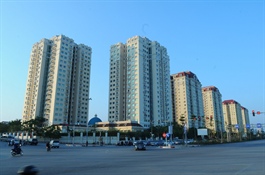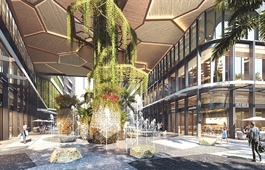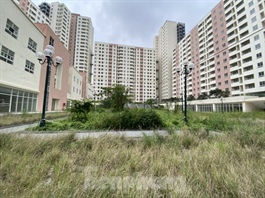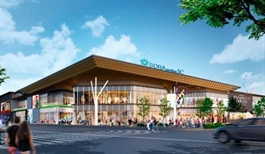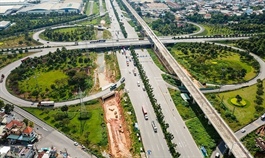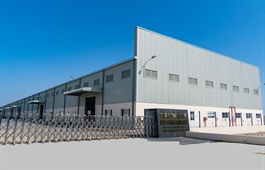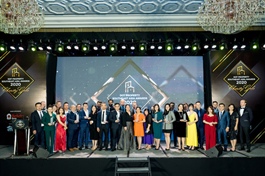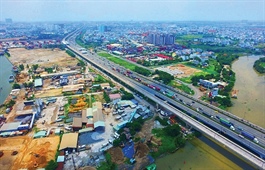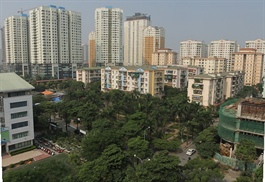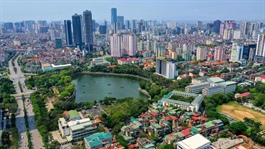Healthy foreign investment in spite of tumultuous year
Healthy foreign investment in spite of tumultuous year
Overseas investment into Vietnam’s real estate market this year remained attractive for as a new wave of funding found its way into the country despite 2020’s restrictions. Peter Dinning, chairman of Colliers International Vietnam, shares his thoughts about this flow and expectations for the new year.

Peter Dinning, chairman of Colliers International Vietnam
|
Prior to the COVID-19 pandemic we were seeing many well-established foreign investors continuing to expand their portfolio in the real estate sector in Vietnam as well as welcoming many new investors who had begun to look at investing directly into projects, potentially partnering with Vietnamese companies to take part in the growing and exciting real estate sector.
Unfortunately the world was hit by a crisis which, while some had predicted, most had not foreseen the huge implications on the world economy.
Vietnam is well known around the world for handling the pandemic in a very careful and professional way, ensuring the safety of their people and keeping the local economy functioning and continuing to grow. We here in Vietnam are one of the very few countries that have not fallen into depression and have predicted strong growth for 2021, even before a vaccine had been delivered to the world.
As a result, foreign companies continue to regard Vietnam as one of the greatest potential markets for growth and investment and real estate is no exception. A strong and effective government that can control the pandemic the way that it has only adds to the feeling that Vietnam is a place where we can do business.
All of the fundamental macroeconomic data remains very strong with good GDP growth and a developing manufacturing economy as companies see Vietnam as an alternative to China. It has a growing and modernising agricultural sector, a developing service sector, strong foreign currency reserves, and a young and eager population.
All of these circumstances coupled with a very young real estate sector provide a strong demand for all types of property with huge opportunity for growth. In comparison to other regional centres such as Bangkok, Manila, and Jakarta, Hanoi and Ho Chi Minh City have a long way to go to catch up.
Due to the ongoing political tensions between China and the United States, industrial properties are in very high demand as more and more manufacturers are preparing to make Vietnam their second location to allow them to avoid any potential trade wars and import duties and taxes. The most exciting sector is the residential one, which is still in high demand from the growing young middle-class population who are ready to marry and move out of the traditional family homes, often utilising combined family capital to purchase their own home.
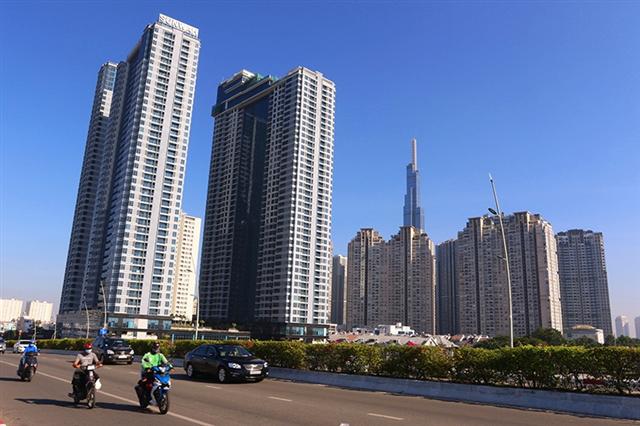
Overseas investors are still keen to enter and expand in Vietnam’s growing real estate sector, which has offered wide opportunities for years, photo Le Toan
|
Favourable factors
Before the pandemic, Vietnam was already in the top 10 countries worldwide in terms of inward investment. Due to the excellent way in which the Vietnamese government has controlled the consequences of the pandemic, Vietnam is now considered in the top five countries for investment.
Our clients are eager for travel restrictions to be lifted so that they can come to Vietnam and complete their site inspections and physical due diligence and report to their committees for final funding approvals.
The outlook for 2021 and future years is still very strong for foreign investment into the real estate sector in Vietnam as the underlying macroeconomic circumstances and the local demand and supply factors are very favourable for investors to make excellent returns compared to other developing economies around Southeast Asia.
From our conversations with our key investor clients, we have noticed a shift in the way investors would like to enter this sector. Foreign developers who perhaps have not had any experience in Vietnam find it difficult to navigate the often complicated and unusual licensing and pre-construction activities.
All foreign investors are looking for projects where all legal licences are in place, land is held legally with full red book title, planning has been completed, and perhaps even a construction licence is in place. In other words, the project is ready to go.
However, once a local company has reached this level of licensing and have prepared all of the groundwork they either have very high expectations on the value of their project or in fact do not need any help or assistance from a foreign investor or developer. The number of ready-to-go projects in Vietnam is very limited both by overseas and local developers.
As a result, those international developers and investors are now more likely to seek out strong local partners who perhaps require additional expertise in the execution of their projects, or are in need of some financial assistance outside the usual banking arrangements to complete such matters as land compensation and pre-construction activities.
The opportunity for up-and-coming local companies to find foreign investors willing to join is very good, but they must reach a certain level to pass the often stringent requirements that the foreign investor needs to receive approval from their investment and/or board committees to make a substantial commitment to these local companies.
Dedicated understanding
There are several requirements that can be described. At the top of the list should be a company which has some track record in the completion of buildings, not simply a list of proposed projects.
Second would be a strong and significant land bank and or land bank opportunity with the ability to secure and streamline the acquisition process.
Next is an understanding and perhaps experience of how to work with foreign investors and what they require in terms of transparency and standards of accounting and responsibility.
And finally is what I term having the correct DNA, including a chairman and a management team committed to the internationalisation of their company, and a willingness to listen to new ideas and suggestions with the knowledge that the right foreign partner has the same distinct vision and plan to create a company for the benefit of all shareholders.
Unfortunately, many Vietnamese companies view the foreign investor as simply a source of funding which can be utilised in the usual way of their course of business without the need to adapt to a different set of rules and corporate governance.
The Vietnamese developer who has projects at various stages of the process will have the greatest chance of securing foreign investors and partners. They must have phase 1 projects which are ready to go as described above; phase 2 projects where licensing is well underway and planning applications are being prepared in readiness for the final stages of pre-construction approvals; and phase 3 projects which perhaps are only at the ideas stage where discussions with local authorities or private landowners have just begun and the local partners have the ability and experience in securing the rights to develop.
The Vietnamese developer must also require from the foreign potential partner a good track record perhaps in countries outside their home country, strong financial capability, access to additional international funding, and excellent design capability, among other factors.
This combination of partners will quickly create a trustworthy market brand and compete with all other well-established development companies.
Foreign investors are still keen to enter and/or expand in Vietnam’s growing real estate sector and they feel the opportunity will continue for many years to come. They realise that to compete with the best locally-grown real estate development companies, they need to identify strong local partners where both understand that they are bringing their expertise to the table for their joint benefit.
Vietnamese developers need to focus on the preparation of their companies to be ready for the strict due diligence process which the foreign investor requires before an investment can be made either at a project or company level. Any major foreign investors’ due diligence process will quickly identify the problems usually found within local companies, any progress in preparing for this will place these Vietnamese companies at the top of the list and will receive the largest amount of interest to attract overseas investment.



